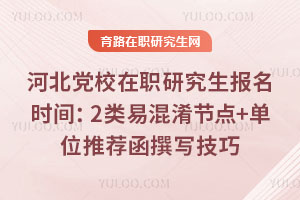- 微信公眾號(hào)

政策解讀
- 微信小程序

快速擇校

政策解讀

快速擇校
It is plain that in the year 2000 everyone will have at his elbow several times more mechanical energy than he has today.
There will be advances in biological knowledge as far-reaching as those that have been made in physics. We are only beginning to learn that we can control our biological environment as well as our physical one. Starvation has been predicted twice to a growing world population: by Malthus in about 1800, by Crookes in about 1900. It was headed off the first time by taking agriculture to America and the second time by using the new fertilizers. In the year 2000, starvation will be headed off by the control of the diseases and the heredity(遺傳) of plants and animals—by shaping our own biological environment.
Now I come back to the haunting theme of automation. The most common species in the factory today is the man who works or minds a simple machine—the operator. By the year 2000, the repetitive tasks of industry will be taken over by the machines, as the heavy tasks were taken over long ago; and the mental tedium will go the way of physical exhaustion. Today we still distinguish, even among repetitive jobs, between the skilled and the unskilled; but in the year 2000 all repetition will be unskilled. We simply waste our time if we oppose this change; it is as inevitable as the year 2000 itself.
1. The article was written to _____.
[A] warn us of the impending starvation
[B] present facts about life in the near future
[C] oppose biological advances
[D] warn of the evil side of automation
2. Advances in biological knowledge were _____.
[A] kept pace with advances in physics
[B] been responsible for the invention of new machines
[C] surpassed those in physics
[D] lagged behind those in physics
3. According to the passage,starvation _____.
[A] can be predicted
[B] is unavoidable
[C] can be prevented
[D] is mainly caused by poor agriculture
4. Repetitive tasks in industry lead to _____.
[A] physical exhaustion
[B] mental stimulation
[C] mental exhaustion
[D] extinction
5. If the predictions of this writer are realized,the demand for the unskilled workers in the twenty-first century will be _____.
[A] very high
[B] very low
[C] the same as today
[D] constantly rising
參考答案:B D C C B
特別聲明:①凡本網(wǎng)注明稿件來源為"原創(chuàng)"的,轉(zhuǎn)載必須注明"稿件來源:育路網(wǎng)",違者將依法追究責(zé)任;
②部分稿件來源于網(wǎng)絡(luò),如有侵權(quán),請(qǐng)聯(lián)系我們溝通解決。

河北黨校在職研究生報(bào)名時(shí)間分層級(jí)差異:河北省委黨校(省級(jí))常規(guī)報(bào)名期為每年3-4月,地市黨校(如石家莊、保定等)多為4-5月,均采用“集中報(bào)名+現(xiàn)場確認(rèn)”模式,...

環(huán)境與資源保護(hù)法學(xué)非全日制研究生考試時(shí)間初試時(shí)間非全日制研究生與全日制研究生執(zhí)行統(tǒng)一考試標(biāo)準(zhǔn),初試時(shí)間為每年12月下旬。

憲法學(xué)與行政法學(xué)同等學(xué)力申碩考試時(shí)間課程結(jié)業(yè)考試時(shí)間:以同等學(xué)力申碩方式報(bào)考憲法學(xué)與行政法學(xué)在職研究生,一般大專及以上學(xué)

全國碩士研究生統(tǒng)一招生考試初試時(shí)間:2025年的全國碩士研究生招生初試時(shí)間已經(jīng)確定為2024年12月21日至22日,考試時(shí)長為6小時(shí)的考

社會(huì)學(xué)在職研究生考試時(shí)間前面提到了,社會(huì)學(xué)在職研究生是以同等學(xué)力申碩招生的,可以先學(xué)習(xí)后申碩。申碩考試是國家教育部統(tǒng)一安

政治學(xué)同等學(xué)力申碩考試時(shí)間政治學(xué)同等學(xué)力申碩考試時(shí)間安排如下:課程學(xué)習(xí)階段:課程班免試入學(xué),具有大專及以上學(xué)歷者,全年均
在職研究生
入學(xué)考試
在職研究生
有用嗎
在職研究生
如何報(bào)考
在職研究生
報(bào)考流程
在職研究生
報(bào)名條件
在職研究生
學(xué)費(fèi)一覽表
在職研究生
考哪些科目
在職研究生
怎么報(bào)名
在職研究生
一年考幾次
評(píng)論0
“無需登錄,可直接評(píng)論...”